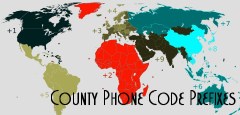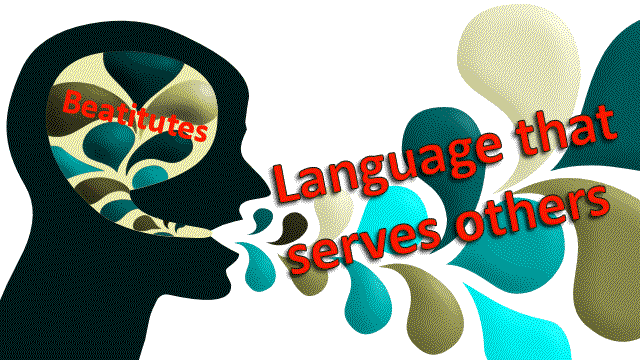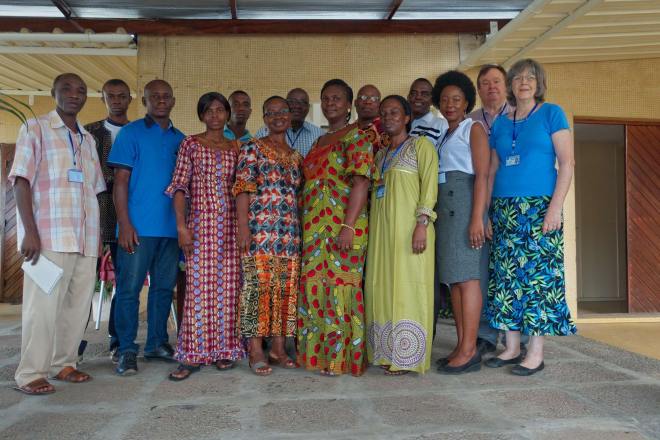 At the end of my time as Director for Côte d’Ivoire, I was moving from files for the incoming Director. That meant labeling a file drawer. The drawer was previously labeled “Members “I-Z”. That meant that when that label was made, it took two file drawers to contain the personnel files for the members (meaning missionaries from the West) who worked in Ivory Coast and this drawer contained those whose last name started with a letter from I to Z.
At the end of my time as Director for Côte d’Ivoire, I was moving from files for the incoming Director. That meant labeling a file drawer. The drawer was previously labeled “Members “I-Z”. That meant that when that label was made, it took two file drawers to contain the personnel files for the members (meaning missionaries from the West) who worked in Ivory Coast and this drawer contained those whose last name started with a letter from I to Z.
I was amused. It took me back to the time when Bible translation was lead and motivated by missionaries coming from the United States, Great Britain, Switzerland and other western countries. In fact, that situation lasted for the first 20 years I was in Africa. This simple file drawer label took me back to that time.
Dayle and I were in Ivory Coast temporarily and I had just handed over to an Ivorian Director. There was one another American couple here and they were temporary too. Besides the four of us, there were no western missionaries residing in the country doing Bible translation. It only took a few hanging folders occupying a small part of one file drawer to contain all their paperwork. But there are translations ongoing in 19 languages and those files are voluminous.
One of the big changes in Bible translation in Africa over the last two decades is the ascendancy of national translators and related personnel and the steep decline in the number of western missionaries working directly or indirectly in translation. This change was foreseeable from the early 1990s. It began happening in the mid 1990s and accelerated after the year 2000.
 I have met a number of missionaries working in Bible translation who found these changes troubling. They ask what we are doing wrong, or what the church back home is doing wrong. Once, when I described the changes, a fellow missionary told me “You do nothing but discourage me.” This was in spite of the fact that we had a number of highly trained Africans ready to fill the gap; some with more training and experience than some missionaries.
I have met a number of missionaries working in Bible translation who found these changes troubling. They ask what we are doing wrong, or what the church back home is doing wrong. Once, when I described the changes, a fellow missionary told me “You do nothing but discourage me.” This was in spite of the fact that we had a number of highly trained Africans ready to fill the gap; some with more training and experience than some missionaries.
The Bible has some interesting stories about people living in what they considered very bad situations but God said that the situations were good. One of my favorites is in Jeremiah 24 which starts like this:
The Lord spoke to me in a vision after King Nebuchadnezzar of Babylonia had come to Judah and taken King Jehoiachin, his officials, and all the skilled workers back to Babylonia. In this vision I saw two baskets of figs in front of the Lord’s temple. One basket was full of very good figs that ripened early, and the other was full of rotten figs that were not fit to eat.
“Jeremiah,” the Lord asked, “what do you see?”
“Figs,” I said. “Some are very good, but the others are too rotten to eat.” (Jeremiah 24:1-3 CEV)
You will agree with me that those who had been forcibly removed form their homes and taken to a foreign country were unfortunate while those who were left in their county were fortunate. But God goes on to say the opposite – that those who were taken away from the country and their homes by force are the fortunate ones; but those who remained in their country and their homes are unfortunate; the bad figs are really the good figs and vice versa. God has a radically different interpretation of the events and his interpretation was confirmed over coming decades.
When we experience disappointment or other negatives, we need to ask God to give us his view of the events.
One of the challenges in missions is for missionaries to seek God’s view of the trends that are happening rather than relying on our gut instinct. I have come to the conclusion that shrinking missionary workforce and the increased number of nationals is not someone’s mistake. It is God’s doing. If we try to fix it we are actually working against God.
Now this does not mean that there is no room in Bible translation for Western missionaries. Quite the contrary. God calls who he calls without regard to nationality, race, gender or anything else. The question is not whether there is a place in Bible translation for Westerners, but rather whether God has called you and whether as a missionary you will work to promote the directions God is taking Bible translation or work against them.














